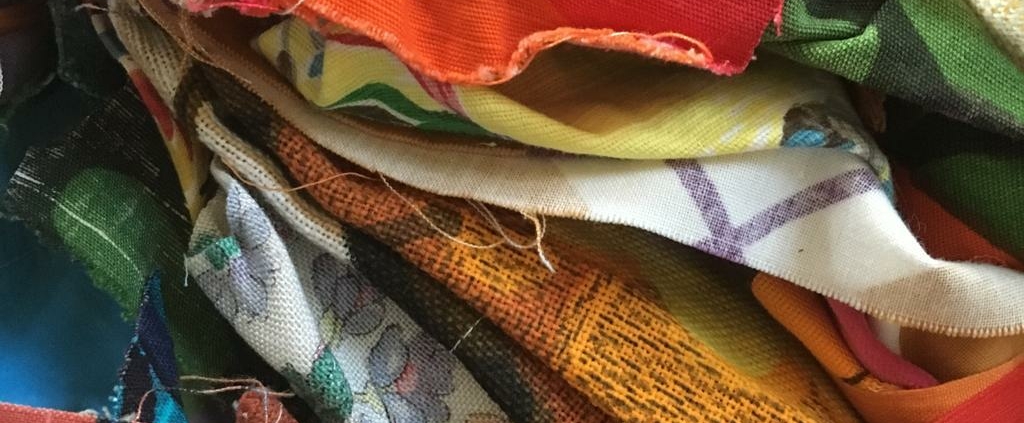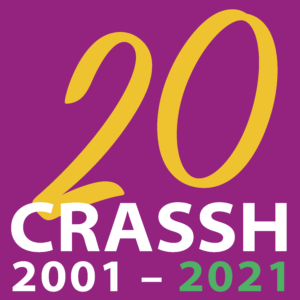BIOGRAPHIES
Georgina Evans, Louise Haywood and Isabelle McNeill
Tactics and Praxis grew from conversations among the three of us, as well as with other friends and colleagues. We felt that creativity, pleasure and ethics tended to be squeezed out or distorted in academic institutions (and society more broadly) – and were certainly not conceived as elements that might be mutually nurturing. We had each been keeping various forms of ‘creative practice’ as a kind of guilty secret and we wondered whether bringing praxis into the heart of our academic lives (rather than in shadowy spaces) might offer tactics for revitalising and remaking the institution along utopian lines, using its own resources against its hegemonies. We have now been running funded seminars for 3 years, have published a manifesto (https://maifeminism.com/tactics-and-praxis-a-manifesto/) and are running this conference. Other plans are temporarily on hold because of the pandemic. We hope to grow our community and intersect with others working tactically. To understand our professional background: we are all working in the Faculty of Modern & Medieval Languages at the University of Cambridge. Isabelle and Georgina both work in film studies and teach French studies; Louise is in Medieval Hispanic studies.
Emma Bell
Emma Bell is Professor of Organisation Studies at the Open University. Her research explores culture, belief and materiality in organizations using qualitative methods of inquiry. She recently built and decorated her first dolls house and there have been a few moments when she wanted to move into it.
Lindiwe Dovey
Lindiwe Dovey is a film scholar and teacher, film festival founder/director/curator, and filmmaker. She did her PhD and post-doc at Cambridge and since 2007 has been based at SOAS University of London where she is now Professor of Film and Screen Studies and the co-Chair of the Centre for Creative Industries, Media and Screen Studies. She is the leader of the project Screen Worlds: Decolonising Film and Screen Studies (2019-2024) and is very excited that, through this project, she and her team are able to engage in creative practice research, such as the making of films and audiovisual essays. She loves all forms of creativity through the arts and working with people who inspire her.
Geistė Marija Kinčinaitytė
Geistė Marija Kinčinaitytė is an artist and researcher, who calls herself an alien anthropologist. Her video and photography practice is defined by encounters with the eerie, which is understood to be both the cessation of a comfort zone — whether self, human, habit, habitat, milieu — and alertness to a yet-to-be-identified presence. Geistė is currently undertaking her PhD in Film and Screen Studies at the University of Cambridge.
Nobunye Levin
Nobunye Levin is a filmmaker, scholar and lecturer. She completed a practice-based PhD at the University of the Witwatersrand, Johannesburg. Her PhD research is an exploration of feminist love praxis that is imagined in the different “enunciations” that take place in politically sensuous spaces formed through the film and written work, which spill over into each other to create a relational film and written world. Nobunye’s filmmaking practice and research is often concerned with the politics of aesthetics and is informed by the epistemic, poetic and political possibilities of cinematic experimentation. She is preoccupied with feeling and thinking in, and through, film practice to produce affective cinematic experiences. Nobunye is a postdoctoral research fellow in decolonising screen worlds in the Screen Worlds: Decolonising Film and Screen Studies (2019-2024 ) project.
Alexandra Grieve
Alexandra Grieve is a Gates Cambridge Scholar and a PhD candidate in the Centre for Film and Screen Studies at the University of Cambridge. Her doctoral research explores costume and material culture in African diasporan cinemas, with a particular emphasis on works by women filmmakers and visual artists.
Katherina Manolessou
Katherina Manolessou is an illustrator and senior lecturer in Children’s Book Illustration at Anglia Ruskin University. She originally studied chemistry in Greece before moving to London where she worked as an animator, then went on to study at the Royal College of Art. Her practice-based doctorate focused on animal characterisation in picturebooks. The book that she developed during her PhD, Zoom Zoom Zoom, was published in 2014 by Macmillan. It was followed by T-Veg (illustrator, Frances Lincoln, 2015), Mummy and Me (Macmillan 2017), and two Look for Ladybird books (Frances Lincoln 2017 and 2020). Katherina’s picturebooks have been published in 16 countries.
Vanessa Marr
Vanessa Marr is an artist, designer and senior lecturer at the University of Brighton, where she is also course leader for BA (hons) Design for Digital Media. Her research takes a critical view of the role of craft in feminist discourse, which she explores primarily through embroidery, drawing and creative writing. She investigates alternative practices of autoethnography through phenomenological engagement with a dusting cloth by ‘drawing with stitch’ and is best known for her ongoing collaborative project ‘Women & Domesticity – What’s your Perspective?’. This growing collection, which references traditional ‘women’s work’ through an open invitation for women to embroider their own experiences of domesticity onto a duster, includes over 100 contributions and has been exhibited and presented widely in academic, community and arts contexts. Her work is underpinned by visual design-theory and process, yet embraces an intuitive and physical approach that facilitates self-authorship and her continuing exploration of the female experience.
Vanessa never stops learning, making and writing, with her current needlework project always at hand, whatever the occasion. Her other favourite activity is walking her dog on the beach.
Leila Mukhida
Leila Mukhida is Lecturer in Modern German Studies at the University of Cambridge, where they specialise in German and Austrian visual culture and teaches a range of topics in post-45 German-language literature and culture at undergraduate and postgraduate level. In their research and their teaching, they advocate for diversity and decolonization in German Studies. Their book, Sensitive Subjects: The Political Aesthetics of Contemporary German and Austrian Cinema, looks to early German-language film theory in order to explore how post-1989 films by directors including Valeska Grisebach, Michael Haneke, Andreas Dresen and Elke Hauck engender a political sensitivity in viewers.
Rose Sinclair
Rose Sinclair is a Design Lecturer (Textiles) in the Design Department at Goldsmiths, University of London, where she involved in teaching textiles/fashion and Design related practice up to Postgraduate level.
Rose has authored several textile books, her most recent being Textiles and Fashion, Materials, Design and Technology by Woodhead publishers 2015.
Her current PhD research, explores the relationship between textiles practice and communities and networks, such as those found in Dorcas Societies, and Dorcas Clubs, especially those inherent in the Caribbean communities. and was recently featured on the BBC Four television programme Craftivism: making a difference (Feb 2021).
Elaine Tam
Elaine Tam is an arts professional and writer from Hong Kong, currently working at White Cube in London. Her practice is an interdisciplinary site for play, pleasure and failure; she works with artists and thinkers to create new forms and forums for critical engagement. Research interests include: psychoanalytic theory, performance writing and the curatorial as organisational model.
Sheena J. Vachhani
Sheena J. Vachhani is Reader in Work and Organization Studies and Co-director of the Centre for Action Research and Critical Inquiry in Organisations (ARCIO) at the School of Management, University of Bristol, UK. Sheena’s work centres around ethics, politics and difference in work and organization with a view to understanding social transformation and social justice. She has an interest in how systems and structures of inequality, including those reified by climate change and narratives of sustainability, offer new insights into business, politics and society.
Sheena is currently engaged in a number of research projects that draw on the intersections between structures of inequality, organisations and society, namely: critiquing and investigating the relationship between affect, language and corporeality; ethico-political resistance in activism and social movements; feminist methodologies; vulnerability and solidarity practices; and craft practices. On this latter theme she has focused onmaterality and material life, more recently exploring new materialist understandings of different craft contexts (with Emma Bell). Sheena has published in a wide variety of journals and books, is co-editor (with Emma Bell) of the book series ‘Feminist Perspectives on Work and Organization’, published by Bristol University Press and is also on the editorial board for Gender, Work and Organization.



